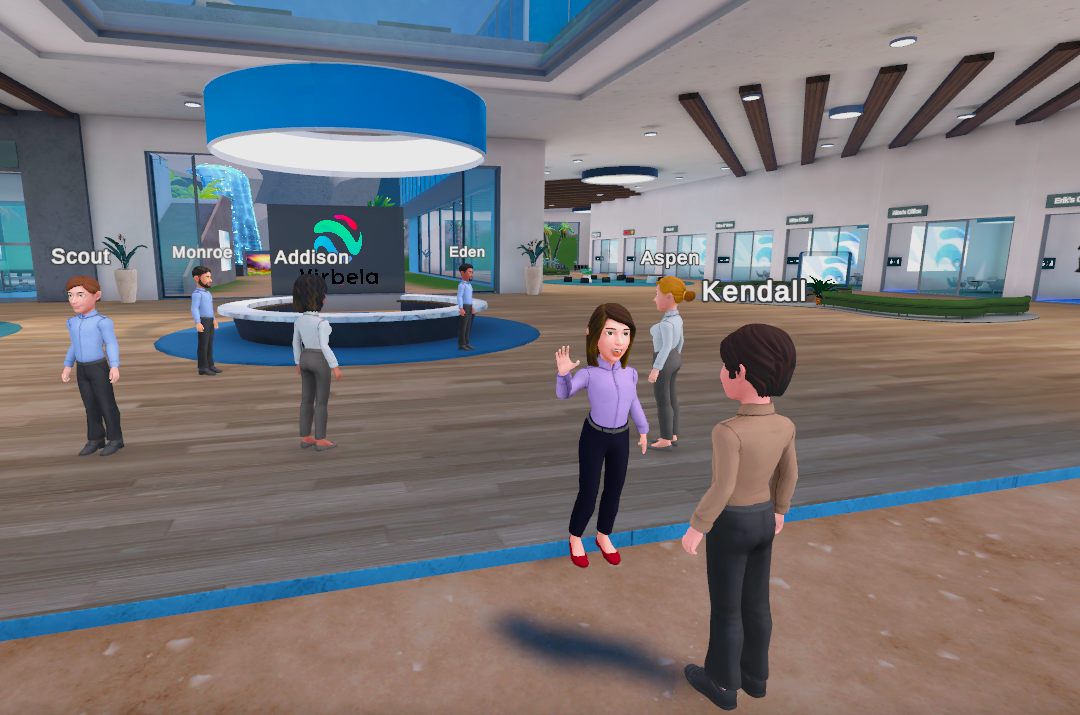As higher education prepares for another academic year, leaders face a familiar but urgent question: How can we deliver high-quality, engaging learning experiences while managing budget pressures and adapting to changing student expectations?
The answer, for many forward-thinking institutions, lies in virtual campuses — immersive, customizable environments that reimagine what higher education can look like in a digital-first world.
Unlike traditional online platforms, virtual campuses offer both financial efficiency and meaningful student engagement, helping colleges and universities do more with less, without sacrificing connection, community, or academic rigor.
Here are five ways virtual campuses are helping higher ed reduce costs and increase impact.
1. Eliminate or Reduce Physical Infrastructure Costs
From real estate to utilities to on-site staffing, maintaining physical campuses is one of the biggest financial burdens for higher education institutions. Virtual campuses provide a sustainable alternative:
- No building maintenance or renovation costs
- No need for additional classroom space as enrollment grows
- No expenses tied to physical signage, furniture, or classroom AV systems
By shifting more academic programs, student services, or even orientation events into virtual spaces, institutions can redirect funding to instructional quality, scholarships, or tech upgrades that benefit students directly.
2. Offer Scalable, Flexible Enrollment Options
Virtual campuses aren’t bound by location or building capacity. They allow institutions to scale programs globally, welcoming students who may never have considered attending due to distance, relocation costs, or accessibility challenges.
With immersive platforms like Virbela, schools can host:
- Fully virtual degree programs
- Hybrid cohorts with global reach
- Pop-up campuses for specific programs or events
This flexibility opens new revenue streams while broadening your student base and mission reach.
3. Boost Student Engagement with Immersive Experiences
Compared to traditional LMS tools or flat video calls, virtual campuses offer students a greater sense of presence and participation. Avatars, spatial audio, and real-time movement replicate many of the social and environmental cues found in physical learning spaces.
This leads to:
- Stronger peer connections
- More natural instructor interaction
- Greater participation in extracurricular activities and events
Whether it's a lecture hall, a tutoring session, or a club meeting, students feel there, not just logged in.
4. Improve Accessibility and Equity
Virtual campuses help level the playing field by making education more accessible:
- Students with disabilities can navigate environments built for inclusivity
- Commuter students save time and money
- Working parents or part-time learners can attend from anywhere
This inclusivity not only supports student success but also aligns with institutional DEI goals and helps reduce attrition by meeting learners where they are.
5. Support Faculty and Staff with Flexible, Modern Tools
Faculty and administrative teams benefit from virtual campuses too. From professional development to virtual office hours, the platform becomes a hub for community and collaboration without the scheduling headaches of physical space.
And because platforms like Virbela are designed for real-time interaction, faculty can simulate the classroom experience with breakout sessions, Q&A, and discussion groups, all within a single immersive space.
The Future of Campus Life Is Virtual, and It’s Already Here
Virtual campuses aren’t here to replace in-person learning entirely. They’re here to enhance and extend the reach of higher education in a world that increasingly values flexibility, cost efficiency, and digital-first experiences.
As institutions prepare for a new academic year, now is the time to explore how virtual environments can support your goals, not just for this semester, but for the future of your institution.
Want to See What a Virtual Campus Looks Like?
Discover how colleges and universities are building community, driving engagement, and reducing costs with Virbela. Book a campus tour.





